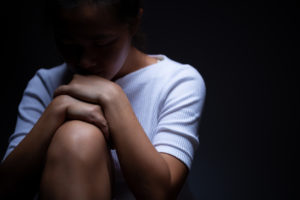Depression is worldwide, and over 264 million individuals suffer from it across the world. Depression is one of the most commonly occurring mental health disorders occurring in adults and children. [i] According to The World Health Organization, depression is one of the leading causes of disability worldwide. [ii]
Depression is a common mental health condition and occurs in all ages, genders, and populations. It is often multifaceted with no single cause, but trauma, loss, malnutrition, poverty, heredity, medications, chronic pain, chronic illness, metabolic disorders, endocrine disorders, neurodegenerative disorders, cardiovascular disease, nutritional deficiencies and chronic inflammatory disorders are amongst the likely culprits, both as cause and/or result.
Over 17.3 million US adults, about 7.1% of the total population, have suffered from a minimum of one major depressive episode in their life. Depression disorders are common everyday issues in most any clinician’s practice, especially if that practice is one that offers general family medicine and primary care.
 Depression is more prevalent in women and young adults aged 18-25 years of age, [iii] most likely due to emotional or psychological stress. According to the National Health and Nutrition Examination Survey, pregnant women were reported to be 3.82 times more predisposed to developing depression. [iv] However, successful suicide attempts are more common among men than women.
Depression is more prevalent in women and young adults aged 18-25 years of age, [iii] most likely due to emotional or psychological stress. According to the National Health and Nutrition Examination Survey, pregnant women were reported to be 3.82 times more predisposed to developing depression. [iv] However, successful suicide attempts are more common among men than women.
Lifestyle habits are a cornerstone, with nature exposure, regular exercise, low alcohol and good nutrition having some specific benefits in the area of depression. Numerous botanicals and nutraceuticals have published data. According to the American Journal of Psychiatry, depression is one of the 10 most frequent indications for the use of complementary and alternative medicine. [v]
There are some bright spots in terms of research, for the use of botanicals and nutraceuticals. I encourage you to read about these and seek a health care provider to help determine which ingredient or which combination is best. My most commonly recommended supplements include St John’s wort, folate, vitamin B12 and SAMe, when I’m looking to support serotonin in particular. For dopamine, I look to L-tyrosine, B6 and Macuna. Other contenders either alone or in combination include: curcumin, saffron, magnesium, high EPA fish oils and lemon balm. Many individuals also have anxiety, so in those cases we might need to expand and use Kava, Lavender and/or GABA in particular.
But again, don’t forget the healing power of being in nature and regular exercise, meaning, most days. It doesn’t take anything fancy…just a good walk for at least 30 minutes will do. And remember, alcohol can cause or worsen depression. Focus on good food, low alcohol, regular exercise, nature exposure and regular/sufficient sleep. These are the foundations. For others, we need to add herbal/nutrient support, and for some, especially those with major depressive disorders, they will likely need some medication, although even in those circumstances, basic lifestyle goodies are essential.
References:
[i] Depression. [Sep;2020 ];https://www.who.int/news-room/fact-sheets/detail/depression 2020
[ii] Depression in the United States household population, 2005-2006. [Sep;2020 ];Pratt L, Brody D. https://www.cdc.gov/nchs/data/databriefs/db07.pdf 2008
[iii] Major depression. [Sep;2020 ];https://www.nimh.nih.gov/health/statistics/major-depression.shtml 2017
[iv] Peppard L, Oh KM, Gallo S, Milligan R. Risk of depression in pregnant women with low-normal serum vitamin B12. Res Nurs Health. 2019;42:264–272.
[v] Kessler R,Soukup J, Davis R, et al. The use of complementary and alternativ etherapies to treat anxiety and depression in the United States. Am J Psychiatry 2001;158:289-294.

